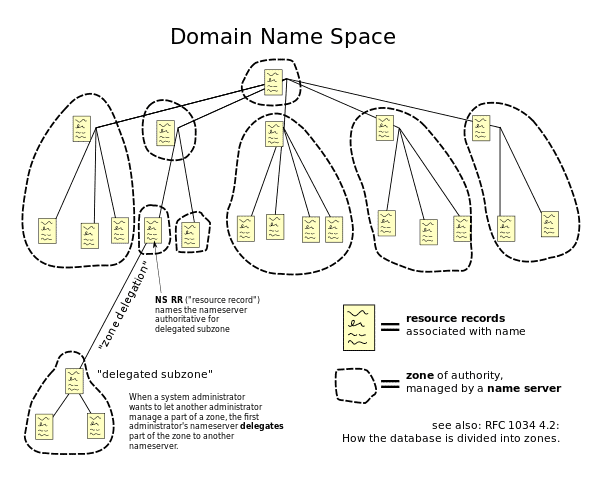It is totally your matter —— how you will spend time online. No other person has to know where you browse, purchase things or how you spend time online. Do you know what will happen if your browsing activities get leaked and others know your personal internet history? What is the situation called? The scenario is called a DNS leak. Fortunately, running DNS leak tests is possible with the purpose of checking for issues before they stir up excess problems. In this article, we will discuss what a DNS leak is, how it works, its types, how to run a DNS leak test, and so on.
What is a DNS?
DNS stands for Domain Name Service. It allows you to browse the internet and visit a website using its name instead of its server IP address. Once you go to the website, your ISP DNS resolvers will be asked to identify the IP address of the website by your computer. It makes sure that there is no need to remember them personally.
What is DNS Leak?
DNS leak refers to a security flaw. It occurs when DNS servers of ISP receive requests even when a VPN offers protection. In order to encrypt a user’s internet connection, a VPN is specially designed. The internet connection is used to keep the traffic in a private tunnel, hiding all the browsing activity.
It indicates your web activities, as well as the websites you visit will be hidden from everyone except for the VPN provider. A DNS leak occurs if your DNS requests go outside the encrypted tunnel to be visible to your ISP. It lets all browsing activities like IP address, location, and web searches go through the ISP in the same way it would if you did not use a VPN.
What Causes VPNs To Leak DNS?
A DNS leak can occur due to several reasons. Technology is changing very quickly. That’s why new ways are also popping up. These are some of the most common reasons:
- Manually Configured VPN:
You may experience trouble because of a manually configured connection.
- You’ve Been Hacked:
When a malicious 3rd-party attacker gets control of your router, it will be capable of monitoring your device to routing DNS traffic around the VPN, leaving you vulnerable.
- Manual DNS Configuration:
It might happen that you have told your device intentionally or unintentionally not to use the DNS servers.
- DNS Spoofing:
An unauthorized party sometimes intercepts DNS queries and offers false responses. Thus, it can carry out a cyberattack.
- Third-party Applications:
A few services or apps which are installed on your device can intercept DNS queries or change DNS settings.
- ISP DNS Redirection:
There are a few web service providers who redirect DNS queries in order to monetize user traffic and bypass your configured DNS server.
Why Should You Check For DNS Leaks?
When you check for DNS leaks, it makes sure that privacy remains protected. It ensures that the internet browsing activity is not exposed to malicious or
unauthorized parties. Checking for leaks is essential in order to verify the DNS requests go where they should. Also, it ensures that your online activities remain private.
What Are The Types Of DNS Leaks?
A device is capable of sending DNS queries to a DNS server, which is unintended, like a non-reliable 3rd party DNS server or unsafe public server. The types of DNS leaks are as follows:
- IPv6 DNS Leak:
In order to send DNS queries, a device uses the IPv6 protocol. All proxy or VPN services are not compatible with IPv6. So, it may happen that these queries are sent to an unintended DNS server.
- WebRTC Leak:
WebRTC communication protocol is used for voice and video chats. It can reveal your DNS requests or IP address.
- Router DNS Leak:
If there are any misconfigured DNS settings on a router, your device can send DNS queries to the DNS servers you don’t want.
What Are The Signs Of A DNS Leak?
These are the signs that your DNS may be leaking:
- Slow Internet Connection:
When DNS requests are sent to the servers, which you don’t want, it might cause delays in the website’s loading times.
- Unblocked Websites:
Are you able to access websites which are supposed to be blocked?
As DNS requests are sent to servers that are not authorized, these servers are not implementing the blocks.
- Unexpected Pop-ups Or Ads:
Malware can change DNS settings in order to redirect to the malicious sites.
- Unusual IP Addresses:
Is your device using many DNS servers or communicating with unusual IP addresses? Then, it is a sign of a DNS leak.
- Inconsistent Geolocation Information:
Are you using a geolocation service or app? Then, you notice that the information of the location isn’t consistent with the actual location. It can happen when you are mistakenly sending DNS requests to servers in various locations. You can perform a simple DNS leak test to find out if the DNS is leaking.
How Can A DNS Leak Happen?
Multiple situations can result in a DNS leak occurring, including:
-
An Improperly Configured VPN:
You can see this type of trouble mainly when you configure a VPN improperly. Also, DNS leak appears when a DNS server that belongs to your ISP is assigned. VPN will require you to connect to your ISP before logging in to the VPN. It can occur if you use many networks on a regular basis.
-
An Ineffective VPN Service:
Doesn’t the VPN service have its DNS servers? Then, it can result in DNS leaks. A DNS server may not be able to offer effective protection from DNS leaks.
-
No Internet Protocol Version 6 (IPv6) Support:
IP addresses used to be 32-bit Internet Protocol version 4 (IPv4) addresses, which have four sets of 3 digits. In order to extend the pool or IP addresses, 128-bit IPv6 addresses have been produced. Its aim is to accommodate more devices. A few VPNs are not compatible with IPv6. The reason is that it can push your DNS request outside of the encrypted tunnel.
-
Transparent DNS Proxies:
A few ISPs have begun to force customers to use DNS servers even while the settings are changed to a 3rd-party VPN. After detecting the DNS setting changes, the ISP uses a transparent proxy. It redirects your web activity to its DNS servers to force a DNS leak.
-
Windows Smart Features:
Microsoft came with a feature called Smart Multi-Homed Name Resolution (SMHNR) in devices which have OSs from Windows 8 onwards. DNS requests are submitted to the servers by the feature. Then, it accepts the DNS server, which responds first. It results in a DNS leak, leaving you open to spoofing attacks.
-
Windows Teredo:
Windows OSs come with a default feature that is known as Teredo. Its target is to simplify the transition from IPv4 to IPv6. This one helps two IP systems to coexist more easily. But it is able to generate high security problems for VPN users. The reason is that this tunnelling protocol may take precedence over your encrypted VPN tunnel.
What Do DNS Leaks Reveal?
The purpose of a DNS server is to keep your search information private. Others don’t have to know how you spend time online. It is the reason DNS leaks are so annoying.
These are the things which can be revealed during a DNS leak:
- The Websites You Visit:
Your visited websites are the major things that a DNS leak reveals. If it occurs, your website’s favourite names can be intercepted, observed, and revealed by those who should not access them.
- IP Addresses:
A DNS leak is able to reveal the IP address of the visited website, including information about you. You should also know that IP addresses have information which reveals plenty of information related to you. In order to map your visited websites, someone has to follow the IP address. DNS leak has the capability to identify the unique devices that were used to access a specific website.
- Timestamps:
There are a few DNS leaks that can reveal the specific time when you access a website. Thus, other people get to know about your internet habits or browsing patterns.
- Metadata:
As soon as someone gets a complete view of your visited website, the IP addresses, and the timestamps of when you visited them, it will reveal plenty of information about you.
Most people never get to know when their DNS server is leaked. However, fortunately, you can perform a simple DNS leak test, that can save you from a huge headache.
How To Conduct DNS Leak Tests:
In order to perform a DNS leak test, there is no need to do anything technical. Hence, the important thing is to find the proper tool. As these leaks need to do with your IP address, there is no need to input any information. In order to run the tests for yourself, you should follow these steps.
- You have to disable the VPNs that you may be running.
- You have to go to a DNS leak test website.
- Run the test.
- It is important to note down your detected IP address, location, & DNS servers.
- You should connect to the VPN.
- You should run another DNS leak test.
You have to check whether the DNS servers, displayed IP address, or location match the real ones. Suppose you see that you are connected with the VPN server, and the VPN leak test shows DNS & IP data, which does not match the first test. In that case, you can ensure that the traffic is secure.
How Does a DNS Leak Test Work?
It can give you information regarding your VPN connection, such as the active IP address & location. Comparing this is possible against the real IP address & location for a DNS leak check. Running a DNS status check is possible to check whether you are using DNS servers belonging to your ISP or VPN. You are also capable of getting advice on DNS leak protection & how to fix the problem by running the test.
How Do You Fix A DNS Leak?
You are able to fix a standard DNS leak. But to do so, you have to configure a VPN to connect it to only its DNS servers. It lets your PC use the DNS servers of your VPN instead of connecting to your ISP. The Windows SMHNR problem can be challenging as this one is built into the OS. There are a few VPN providers that allow Windows 8 & 10 VPN users to install a free plugin to fix the problem. On the other hand, others have to contact the VPN for support.
Why Are DNS Leaks Dangerous?
If DNS leaks, the PC will broadcast the websites that you try to visit. It can be a major privacy concern because this one is able to give away the sites that you visit despite the fact that you are using a VPN.
A DNS leak may cause PC performance problems. It can slow down the speed of your internet. The reason is that your PC sends out DNS requests constantly. Besides, because of this DNS leak, it is challenging to access certain websites as the PC can try to connect to the wrong DNS server.
A leaking DNS could allow potential attackers to see the websites that you are visiting. It is even able to use the information in order to redirect you to malicious websites.
It is possible to use the ‘leaked’ information with other data in order to employ malware, perform phishing attacks, or plot ransomware attacks. Also, these can be used for malvertising or social engineering attacks. With the help of the DNS leak data, learning about someone’s interests is possible. For instance, others can get to know about the user’s interests depending on the websites with which he interacts.
How Can You Prevent a DNS Leak?
You first have to understand what DNS leaks are to ensure that they will not happen in future. As the leak can reveal your information, configuring your VPN server is the only way to prevent this. Thus, you are still capable of using the internet anonymously without the risk of revealing your IP address. Additionally, ensure that the VPN includes features that are capable of protecting you from DNS leaks.
-
Use A VPN Service, Your Own Or From A Third Party:
You can use a VPN server to avoid a DNS leak. These services let you set up a private tunnel between the internet & the computer. In this way, connecting to the VPN server is possible. After that, you are able to begin browsing without revealing the origin IP.
Although the major target of VPN servers is hiding real IP addresses & encrypting the traffic, every VPN provider doesn’t ensure this. In fact, many VPNs can be vulnerable to those types of leaks. You have to double-check the features of the VPN before selecting the next provider. Then, you have to make sure that they won’t enable the DNS leaks.
Are you feeling that you can’t trust a VPN provider? In that case, you can do another thing. For instance, you are able to set up your dedicated or Cloud VPS box, located in an offshore country, where ISPs will not leak any information as your current ISP. Also, you can install your VPN service with software.
-
Use Cloudflare DNS servers:
It is also one of the best options for using Cloudflare DNS servers. Cloudflare launched 1.1.1.1 public DNS servers a few months ago. They claim this to become the most secure DNS resolver worldwide.
There is a very low chance that Cloudflare leaks DNS information to your provider. The reason is that they hardly store any information about your connection. If they store any information, it will be destroyed after twenty-four hours. It is their commitment to users. They said that logs are kept for a day for debugging. After that, they are plugged.
Are you willing to change the local resolvers on Linux & Unix? Then, you need to try to set the two values inside the /etc/resolv.conf file:
nameserver 1.1.1.1
nameserver 1.0.0.1
You should check the official setup instructions for Mac, Windows, and other mobile OSs. This is the most secure way to prevent a DNS leak. However, you have to keep in mind that Cloudflare may provide the internet DNS activity of the last day to law enforcement agencies if requested. It helps to increase the internet speed tremendously. Currently, they are ranked as the fastest DNS resolver worldwide.
Use Your Own DNS Resolving Server:
You can use your Domain Name System server software to mount your DNS resolver. Like the “build your own VPN” solution, it also needs an offshore country, where the ISP has to ensure that no logging of your DNS requests will be there.
-
Use An Anonymous Web Browser:
You can use an anonymous web browser which is capable of preventing DNS leaks. For instance, a browser like Tor can be used. When you use this, it doesn’t need any kind of DNS configuration on the OS end. It offers you total anonymity when you browse something.
-
Use A Firewall:
Using a firewall is possible to fix DNS leaks. You can set up firewalls in order to prevent your information from leaving your PC, including the information that is involved in DNS requests. This method is effective also. The reason is that a firewall is able to disable the DNS process, and prevent the information from going out of your computer.
-
Set Up A Nonexistent DNS:
You are capable of configuring your DNS server to one that does not really exist, like 0.0.0.0 or 127.0.0.1. You can do so with the help of a UNIX/Linux terminal or a graphical user interface (GUI). However, in order to resolve the domain names when you use the web, figuring out another way is possible. And using a proxy is one of those ways. The position of a proxy is in front of your browser. It can handle requests on your behalf. It comes with its IP address. During the DNS process, it uses this to keep the computer’s IP address private.
-
Check For Free DNS Leak Test Tools:
Several tools are available which are designed for DNS leak checks. These let you know if you are susceptible to DNS leaks. They first check which servers are used for resolving domain names when you put any website’s address. Once the test is done, you get to see the servers that get access to your information. If you see any server which you are not expecting, then remember that you have a DNS leak.
Free DNS Leak Test Tools:
Are you using any local ISP DNS public resolver? Do you not use a VPN provider or the Cloudflare DNS? If not, you may be exposing yourself to the DNS leaks.
If you use a VPN service, you should run a DNS leak test. Hence, you should use online DNS leak test apps. These online tests offer quick results. However, you should keep in mind that popular VPN companies have developed these kinds of testing tools. So, it may happen that they are manipulating results to sell users their own VPN services.
What To Do If There Is Still A DNS Leak:
Are you still suffering from DNS leak, even after trying the above-mentioned processes? Then, you should save your work first. After that, you have to restart all the devices. Remember that the same thing has to be done with your router to ensure that changes are made.
If the trouble persists, you have to flush the DNS cache. It will clear out the DNS settings. As a result, your machine will have only a record of the servers of your VPN provider when you connect.
Windows:
If you are using Windows, you only have to open the command prompt. Then, you have to type:
///CODE///
ipconfig /flushdns
///CODE///
Then, a message will appear saying that the operation was successful. It will work on all versions of Windows from XP onwards.
Mac:
If you use a Mac, you need to open Terminal. Next, you should type the following:
///CODE///
sudo dscacheutil -flushcache;sudo killall -HUP mDNSResponder
///CODE///
Unlike on Windows, a message won’t appear, the Terminal will go to a new line when the command works.
Linux:
As a Linux user, you are able to flush the DNS cache from the Terminal. However, these steps can vary and depend on the distro you use. You should go to the Support page for the specific version of Linux if you require any assistance.
Several internet browsers contain their DNS cache that needs to be flushed by you. If you use a Chromium-based browser (such as Opera or Google Chrome), you only need to tap on the address bar and type [your browser name]://net-internals/#dns, e.g.
///CODE///
chrome://net-internals/#dns
///ENDCODE///
Then, you have to click the button that is marked ‘Clear Host Cache’.
Edge:
If you are an Edge user, you have to follow the steps on the Microsoft Support site, allowing you to clear the whole cache & cookies.
If you are a Firefox user, you should type ///CODE///about: networking#dns/// in the address bar. Next, you have to click the button marked ‘Clear DNS Cache.’
What Happens After Fixing A DNS Leak?
After plugging a DNS leak, other methods still exist through which you can be identified, even when you use a VPN, like browser fingerprinting. Ensure that you check the support pages of your VPN provider regularly in order to check the following best privacy practices. You need to apply the updates to the OS & internet application as soon as they are available to resolve security vulnerabilities.
The Bottom Line:
If you use ISP-based DNS resolvers, you may lose your online privacy. For instance, it can slow down internet speed based on the browsed contents, filter your entertainment subscriptions, or provide all details to law enforcement agencies. Creating your own VPN server is the most effective way to prevent a DNS leak. Or you can use such ones which guarantee your privacy.
Frequently Asked Questions
- Is a DNS Leak Bad?
It is sometimes dangerous as it can contraven why a user deploys a VPN service. As a result, private information of the user can be leaked to 3rd-party organizations, ISPs, etc. For instance, information like IP address, browsing activity, location, etc can be leaked to even malicious actors who are able to track network activity.
- Is your DNS Leaking?
You need to test your VPN connection to check if your DNS is leaking. Tests that are provided by several VPN suppliers & vendors, display the DNS server to which you are connected & supply information about your browsing activities.
- Are DNS Leak Tests Safe?
The popular VPN providers are able to offer DNS leak tests which are both secure & safe. So, as a user, you have to avoid DNS leak tests from unreliable providers.







